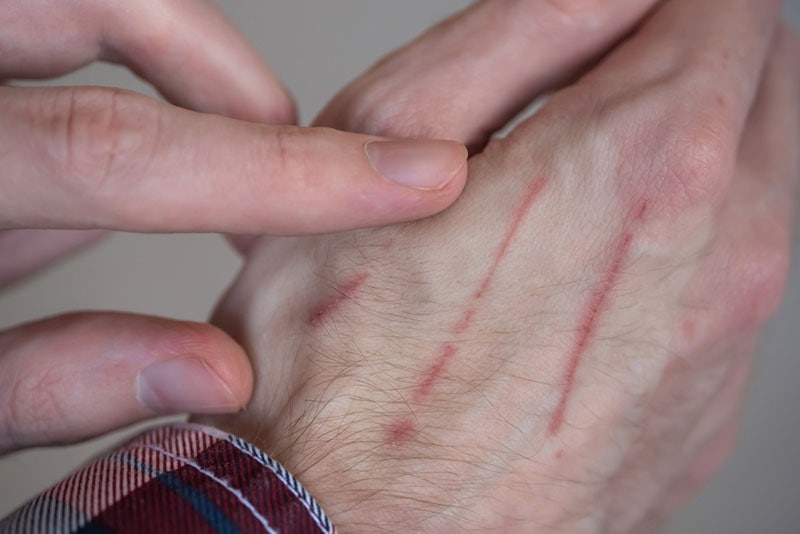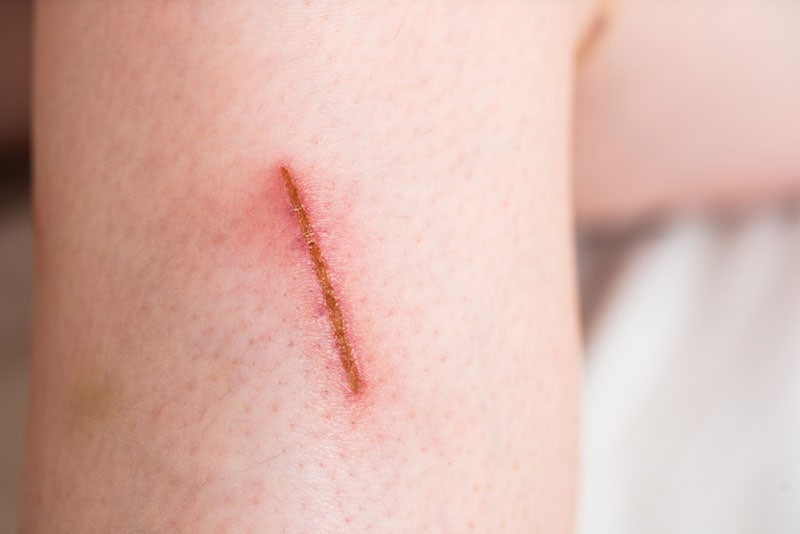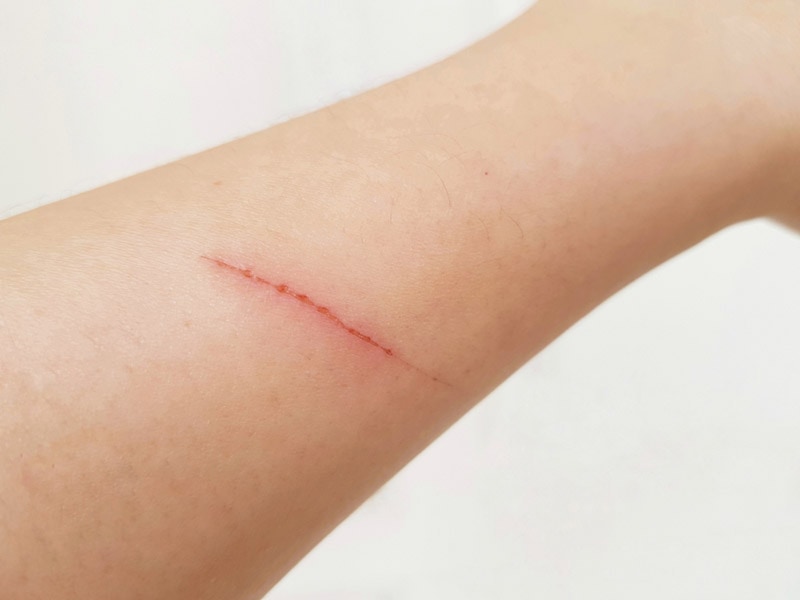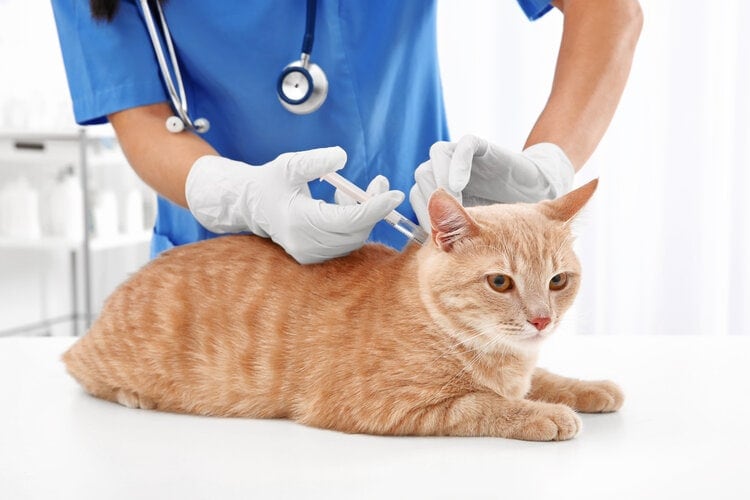Why Are Cat Scratches Itchy? 4 Vet-Explained Reasons
By Dr. Kim Podlecki, DVM (Vet)
Updated on

Sometimes, when playing with your cat, scratches occur by accident. But we also all know cats who will bite, scratch, and cause harm to anyone in their path—by choice! If you get scratched by a cat, the wound itself can become itchy.
Continue reading to find out what to do if you get scratched by a cat, and the four most common reasons that scratch may start to itch.
Click to Skip Ahead:
What to Do if You Get Scratched by a Cat
First thing you want to do if you get scratched by a cat is thoroughly wash out the wound. We’re talking soapy warm water and scrubbing for a few minutes. You don’t need to use scalding water or harsh chemicals to clean the wound. Just good, old fashioned hand washing with appropriate soap.
You should closely monitor the scratch for any of the abnormalities discussed below. A superficial scratch, or one that is close to the surface of the skin, often heals fine if there is no infection. However, if the scratch goes very deep, or if it’s within a joint, such as on the finger, you may be at increased risk of complications.
If you ever get bit by a cat, whether you think it’s deep or not, you need to see your human physician.
The 4 Common Reasons Why Your Cat Scratch Itches
1. Normal Healing
A scratch that does not go that deep into the skin and tissue is at a lower risk for becoming infected or having complications. The bodies’ normal response is to recruit white blood cells, platelets, and other cells to help heal the wound closed. Itching is a normal response to the body healing.
If and when a wound is deeper or more traumatic, the body will trigger both an inflammatory and a pain response. But when the wound is more superficial, the “worst” the body does is become itchy. This should last only a few days.
Nothing. Aside from the initial good washing of the wound, you shouldn’t have to do anything but monitor a non-complicated wound. You may want to consider having your veterinarian trim your cat’s nails to help prevent any further scratches.
2. Allergies to Cats

Many people are allergic to cats. Allergies to cats, similar to allergies to other things, can range from minor to severe. If a person just has a minor allergy to cats, they may get watery eyes or itchy skin when they are near them. Others will get significant itching and some swelling around the scratch site.
An allergic reaction to a cat scratch is due to proteins in the cat’s saliva, urine and/or dander (flakes of dried skin). Therefore, when a cat scratches someone who is allergic, those proteins will cause an allergic reaction. Similar to an infection, the body will respond to an allergic trigger. The body will release histamine and recruit multiple types of cells to fight this.
3. Infection
Cats’ nails are typically full of bacteria. Think about it—your cat goes to the bathroom in a litter box. They use their nails to scratch and bury their urine and feces with the litter. All of the bacteria in there can become stuck underneath their nails. In addition, your cat just doing normal day-to-day activities and walking around the house will expose their feet and nails to bacteria constantly. If your cat then scratches you, some or all of that bacteria will be transferred to your skin.
The skin is your body’s first line of defense against any type of trauma, including scratches and infection. Once the bacteria gets transferred to the skin, your body will release white blood cells to help clot blood, clear bacteria, and heal the wound. Many of these cells are pro-inflammatory, meaning they produce inflammation in the body as part of their healing process. The cells, which are pro-inflammatory, will cause the body to itch at the infection site.
4. Cat Scratch Fever

Cat scratch fever is a very specific disease that may develop following a significant cat scratch. It’s caused by a bacterium called Bartonella henselae. The bacteria itself is spread from fleas to the cat, which then become carriers and spreaders of the bacteria.
In order to become infected by Bartonella henselae, the scratch has to be severe and deep enough to break the skin. As discussed above, the bacteria under the nails then gets passed into the open wound. This bacteria can then infect the immediate surrounding tissue from the scratch, and also get into the bloodstream. Once the bacteria gets into the bloodstream, the condition of cat scratch fever can develop. It’s a very serious disease that will require aggressive medication attention by a human physician.
Final Thoughts
Your cat may accidentally scratch you when you’re just playing. Other cats may scratch because they are nervous, scared, or just downright mean. Whether the scratch is superficial or deep, you should at first wash it out with soap and water. Following that, you may notice that the scratch gets itchy.
Four reasons why the wound may itch are from normal healing, allergies, infection, or, most seriously, cat scratch fever. All of these require monitoring and potentially further care by your physician, depending on the severity of the wound and any of your underlying allergies.
You Might Also Be Interested In:
Featured Image Credit: Zyabich, Shutterstock













